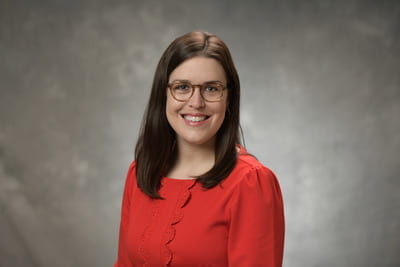Dr. Amanda Leggett is an Assistant Professor in the Institute of Gerontology and Department of Psychology and an adjunct assistant professor in the Department of Psychiatry at the University of Michigan.
Main Discipline(s):
Main Professional Societies:
Affiliation(s):
- Gerontology, Human Development and Family Studies, Psychology
- Gerontological Society of America
- ISTAART (Alzheimer’s Association)
- Wayne State University, Institute of Gerontology and Department of Psychology
- University of Michigan, Department of Psychiatry
What are your undergraduate and graduate degrees in and from where?
- Bachelor of Arts degree in Psychology (minor in Dramatic Literature), Queens University of Charlotte
- Master of Science and Doctor of Philosophy in Human Development and Family Studies, Pennsylvania State University
- postdoctoral fellowship in Geriatric Psychiatry, University of Michigan
Give a brief summary (250 words or less) of your current area of research.
Broadly my research focuses on mental health and aging with a specific focus on family caregiving for individuals living with dementia. I’m currently working on multiple grants examining the caregiving management styles of family caregivers for individuals living with dementia and also the composition and functioning of caregiving networks. I’m interested in biopsychosocial outcomes of care for caregivers and individuals living with dementia- everything from caregiver burden to stress biomarkers to health services utilization.
How did you arrive at your current area of research?
My first “real” job was working as a waitress at an assisted living facility where I learned that I hated food services but loved working with the older residents and also was fascinated by the many mental health challenges that are evident in these settings. At the same time, I had also had jobs with children and adolescents, and I was drawn to lifespan developmental psychology as a way to pursue aging research without forgoing my interest in other age groups. Caregiving was a way to study issues of mental health and aging that were important to me, while also working intergenerationally as caregivers are often older and younger adults. I have worked with caregivers from age 20 to age 90, so it is a true lifespan field of study.
What do you see as a current emerging area of research that you would like to participate in and why?
I recently got interested in caregiving networks because so much focus in our field has been placed on “primary caregivers” but this is artificial in many cases as often individuals have broader networks of care that may include adult children, grandchildren, friends, neighbors, etc. The methods are there to explore these groups and so that is why I’m excited to dig into this topic.
Tell us your (one) favorite STEM research paper or book. Why it is your favorite?
My favorite STEM book is Atul Gawande’s Being Mortal. It is all about end-of-life decision making and how we make decisions that balance personhood and quality of life with life extending measures. Dr. Gawande is such a fantastic writer, but this book in particular really hits on my research interests and passions.
Do you have a favorite scientist, engineer or other role model? Who is it and why?
Definitely (a role model is) my former Ph.D. mentor, Dr. Steven Zarit, who was a pioneer in the field of dementia caregiving research but also someone who cared about his students as individuals and is still a great support to me today. I also am a fan of Robert Sapolsky’s work; I think he is incredible at putting complex research into writing that is easily digestible and filled with humor. I hope I can emulate him in my teaching!
What do you do for fun outside of your role as a woman in STEM?
For fun I spend a lot of time with my pug, love to run and am currently super into Peloton workouts. I’m active in my church, and I’m a passionate theater/Broadway lover. While I grew up performing I now enjoy being a supporter of the arts and you can find me in the audience many weekends out of the year.



